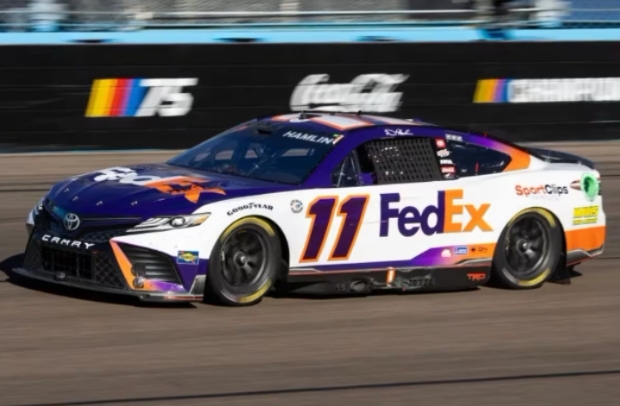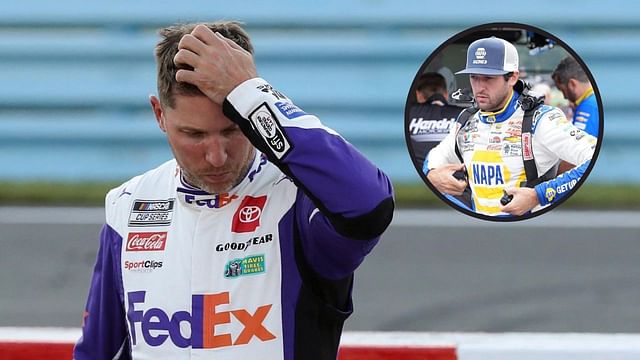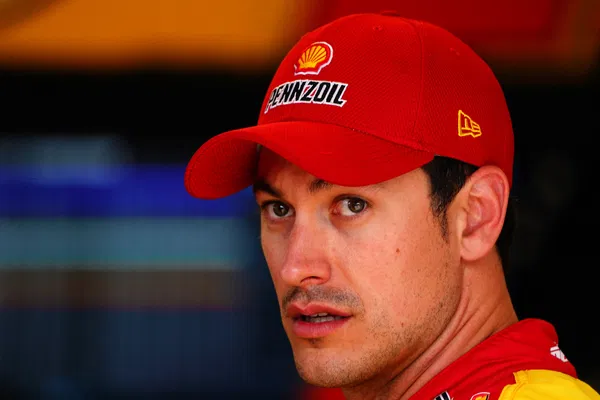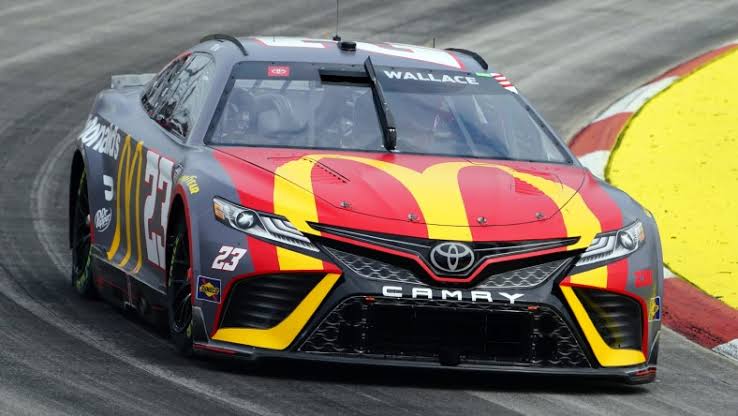FedEx’s financial struggles have led to a noticeable cutback in its sponsorship role with Joe Gibbs Racing (JGR), sparking concerns about the racing team’s future stability. This season, FedEx sponsored only 10 races, a significant drop from previous years, indicating that their once-strong partnership may be fading. As FedEx tightens its budget, JGR has been forced to seek new sponsors to make up for the financial loss. The fear now is that FedEx’s potential exit could severely impact JGR’s operations, morale, and performance in the highly competitive world of NASCAR.
FedEx Scaling Back on JGR Sponsorship
FedEx’s gradual withdrawal from JGR sponsorship has been ongoing for several years, and it appears this trend will continue beyond the current season. This marks a major change for both FedEx and JGR, who have been strong partners since 2005. At its height, FedEx contributed nearly $25 million annually to JGR in rights fees. This substantial investment gave FedEx high brand visibility and helped JGR remain competitive, particularly with driver Denny Hamlin benefiting from full sponsorship in all 38 races until 2021.
However, as FedEx continues to pull back, questions about JGR’s future are becoming more pressing. The reduction in financial support may weaken the team’s overall competitiveness on the racetrack. What was once a flourishing and mutually beneficial relationship now seems to be unraveling, and this could have far-reaching consequences for JGR’s performance and standing in NASCAR.
New Sponsorships Needed to Fill the Gap
FedEx’s shrinking involvement has pushed JGR to actively search for new sponsors. The team needs to quickly find financial backing to offset the impact of FedEx’s reduced commitment. This challenge could affect not just JGR’s operations but also its performance on the track, as financial stability is crucial for maintaining a competitive edge.
Currently, JGR has managed to secure other sponsors like Mavis Tires & Brakes, Sport Clips, Interstate Batteries, and Yahoo, which have stepped in as primary sponsors. Still, these sponsors are filling only part of the gap left by FedEx, highlighting the fragmented nature of JGR’s current sponsorship strategy. The hunt for a solid, long-term sponsor is essential if JGR wants to stay competitive.
FedEx’s Potential Exit Could Be a Major Blow
Should FedEx decide to exit NASCAR entirely, JGR would face significant challenges. The absence of such a major sponsor could destabilize the team’s operations and morale, especially with Denny Hamlin’s recent struggles in the playoffs. Hamlin’s inconsistent performance only adds to the uncertainty, making it even harder for JGR to attract new sponsors during this turbulent period.
Although it remains unclear whether JGR and FedEx are engaged in last-minute negotiations, the silence from both parties suggests that their partnership may be nearing its end. This lack of communication has fueled speculation and raised alarms about the future of the No. 11 car, which Hamlin drives. If FedEx officially pulls out, it could mark the end of an era for JGR, forcing the team to reimagine its future without one of its longest-standing supporters.
Navigating a Shifting Sponsorship Landscape
The evolving situation underscores the importance of adaptability in sports marketing. As companies like FedEx re-evaluate their financial commitments in light of broader economic pressures, racing teams must also adjust. JGR’s ability to secure new sponsors will determine not only its financial stability but also its continued success in NASCAR.
The sponsorship shifts present both challenges and opportunities for JGR. On one hand, the team is losing a major sponsor, which could shake its operations and competitiveness. On the other hand, the situation opens the door for new sponsorship deals, which could reshape JGR’s identity and provide fresh momentum.
The immediate future for JGR is uncertain. The reduced sponsorship from FedEx and the ongoing search for new backers will likely influence the team’s strategy moving forward. Securing stable, long-term sponsors is now a top priority, as JGR needs financial support to stay relevant in an increasingly competitive NASCAR environment. The sponsorship landscape is shifting, and JGR must adapt quickly if it hopes to remain a top contender.
Ultimately, the outcome of this sponsorship saga will have lasting effects on JGR’s future. The team’s ability to navigate this uncertain terrain will shape its operational strategy, financial stability, and competitiveness in the coming seasons. As JGR continues to seek new sponsorships, the next few months will be critical in determining the team’s trajectory within NASCAR.




